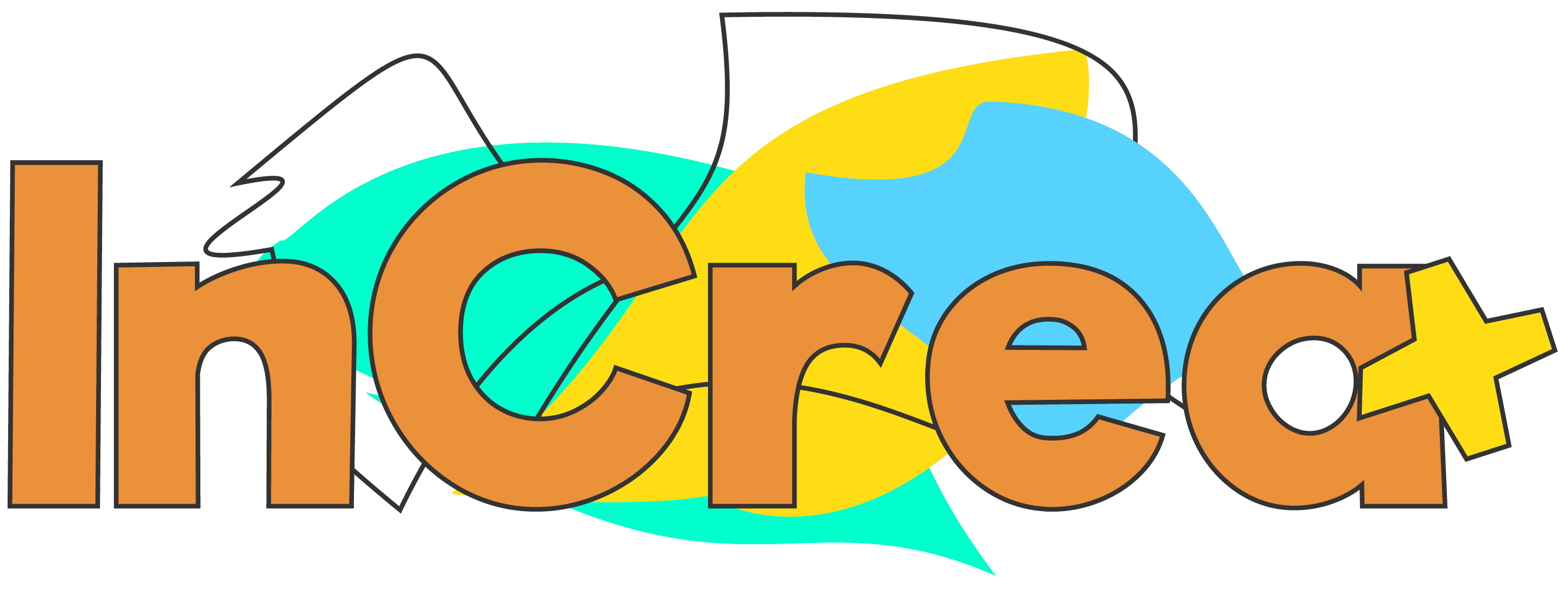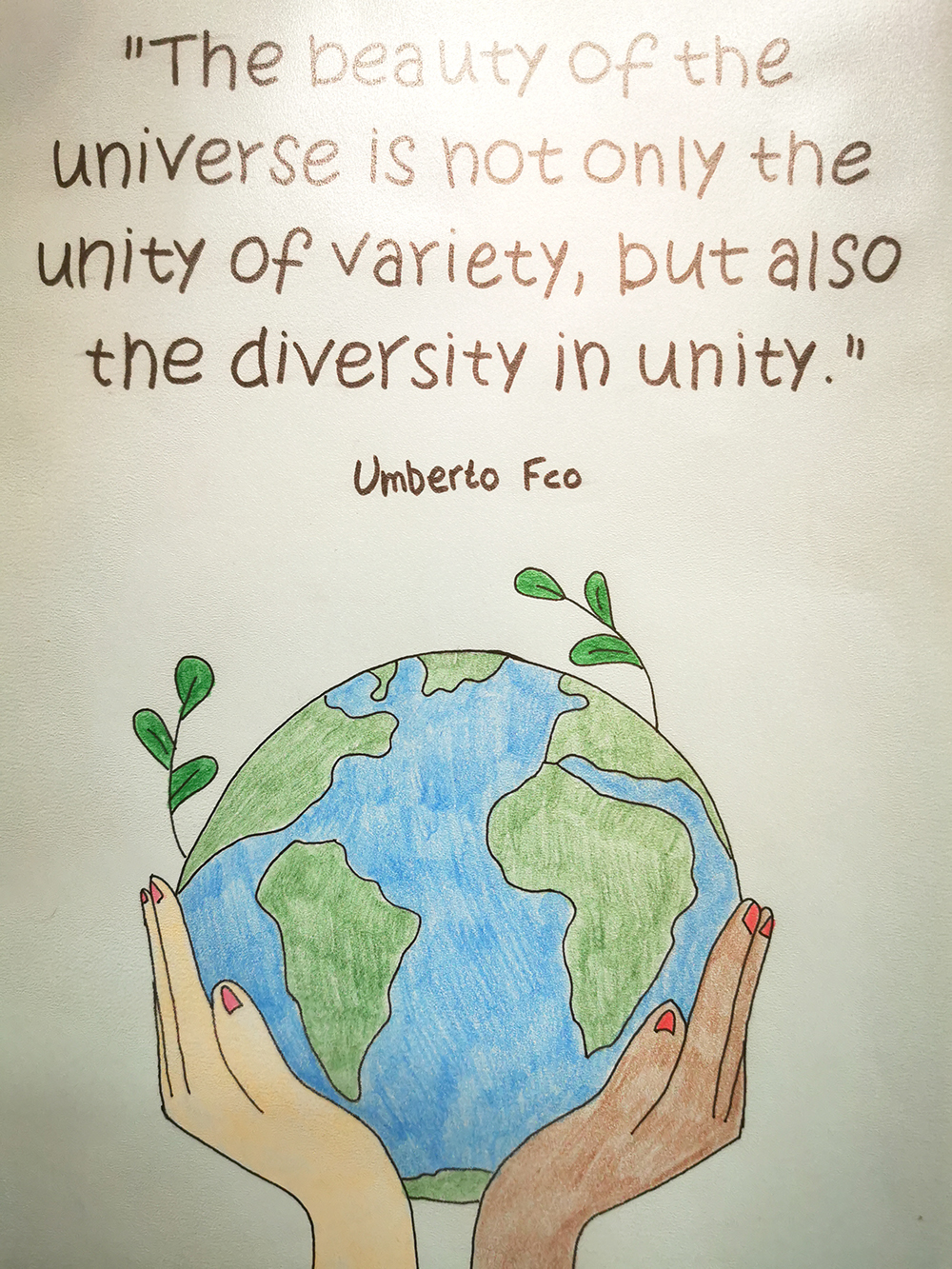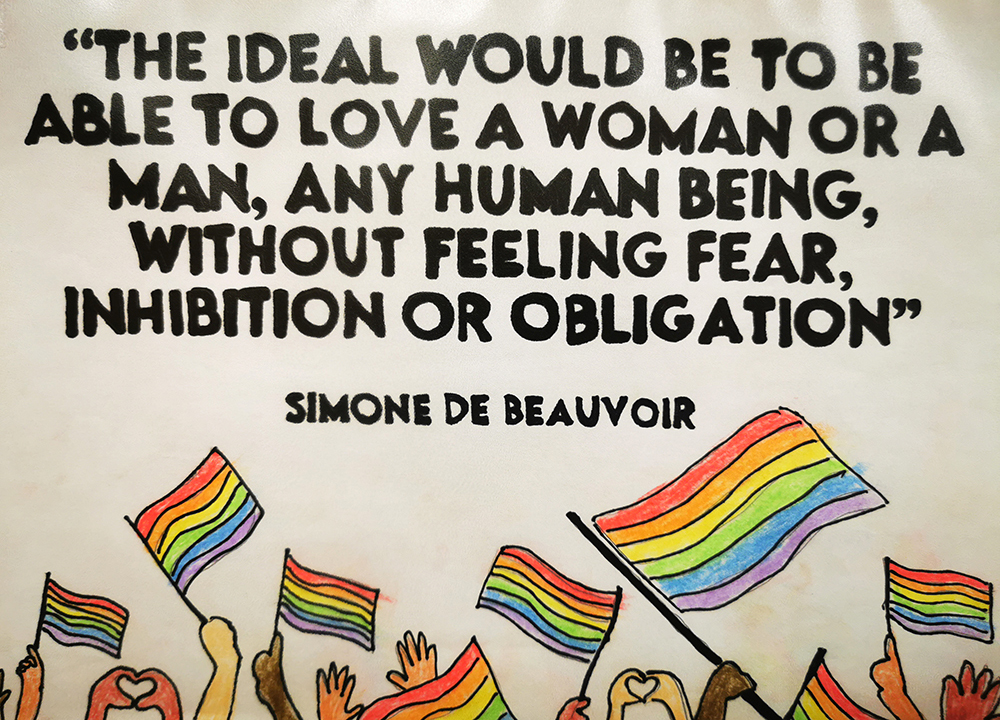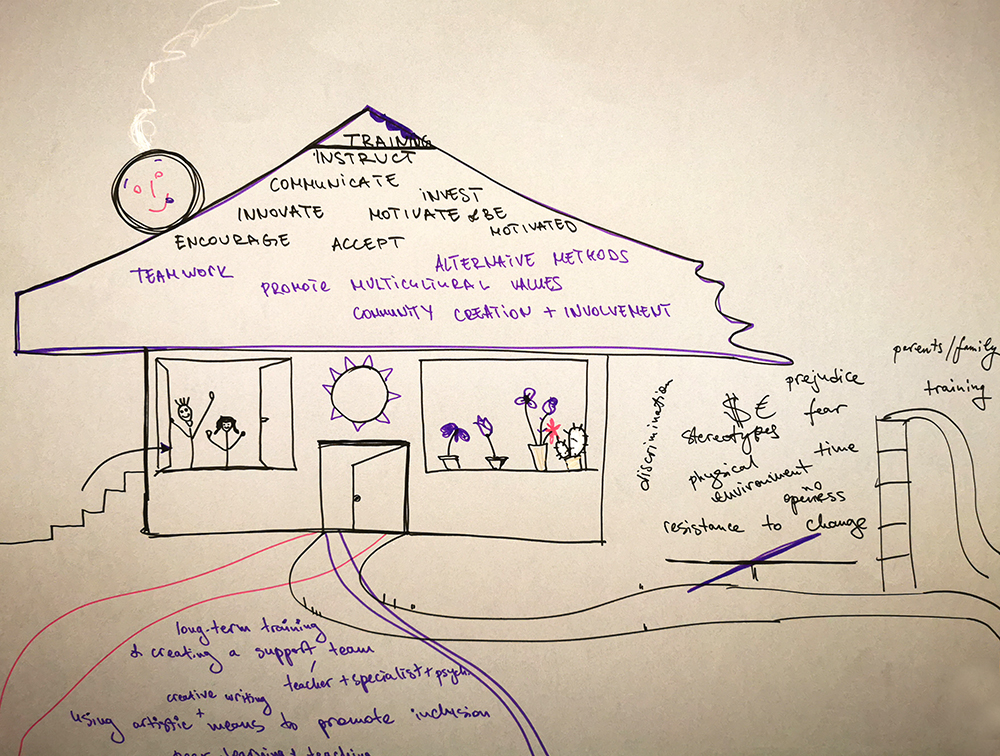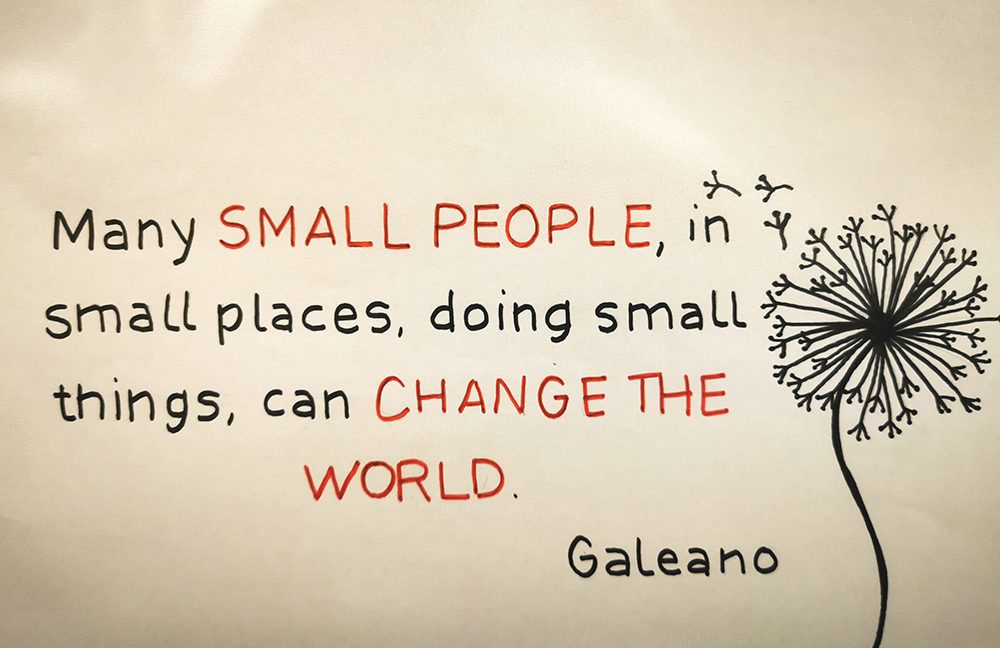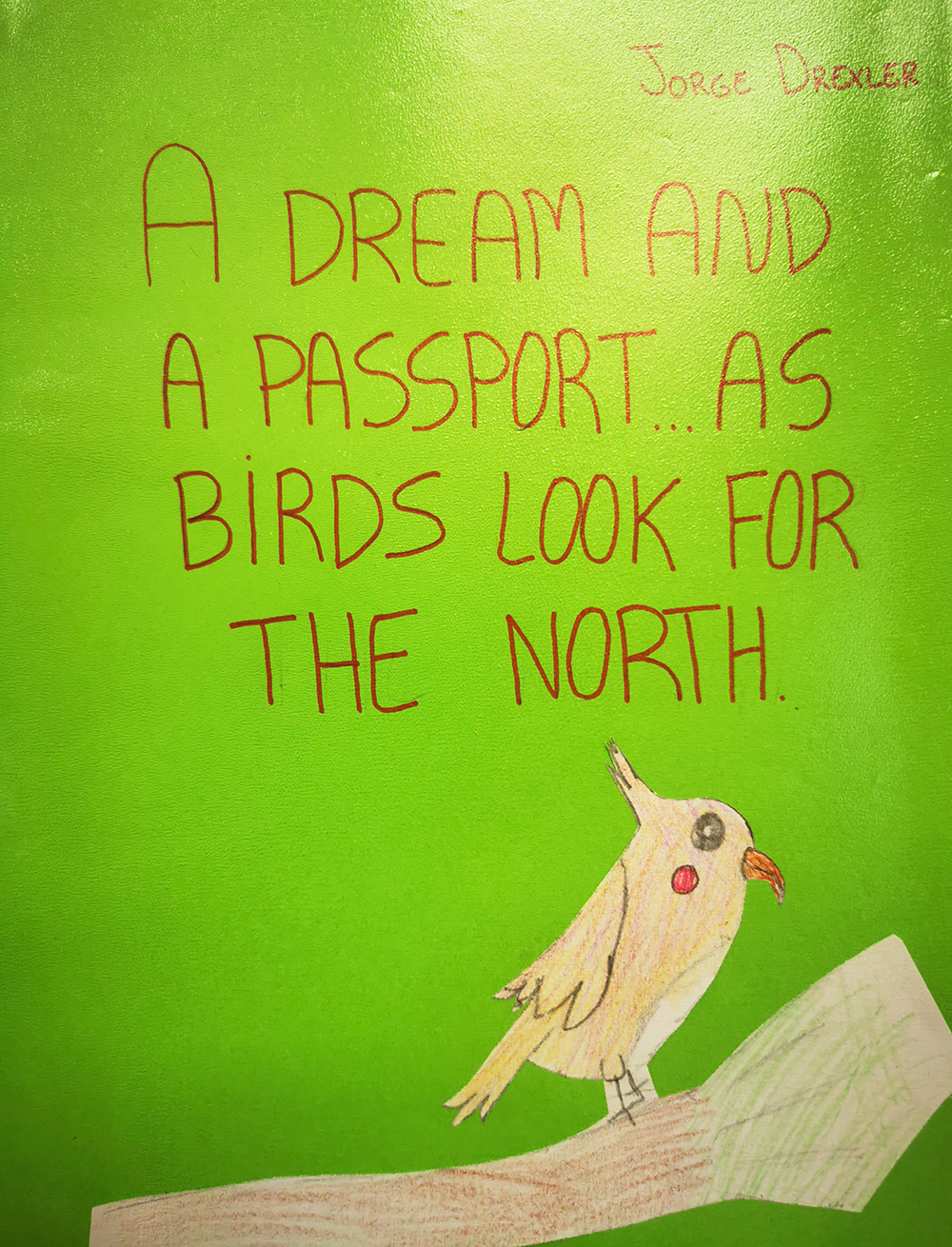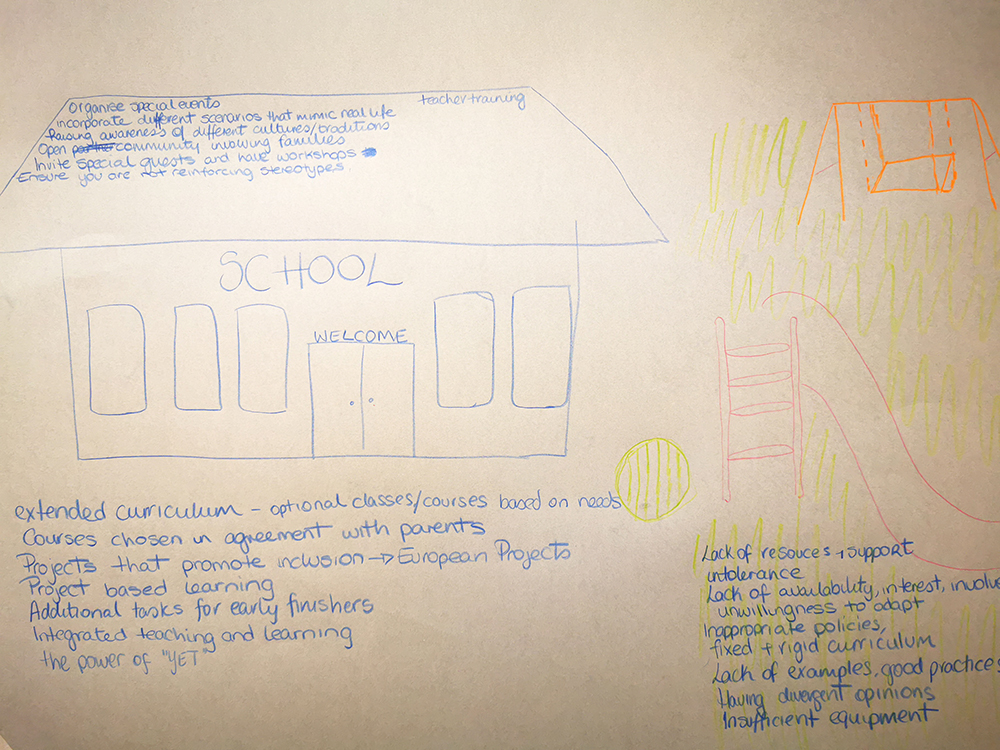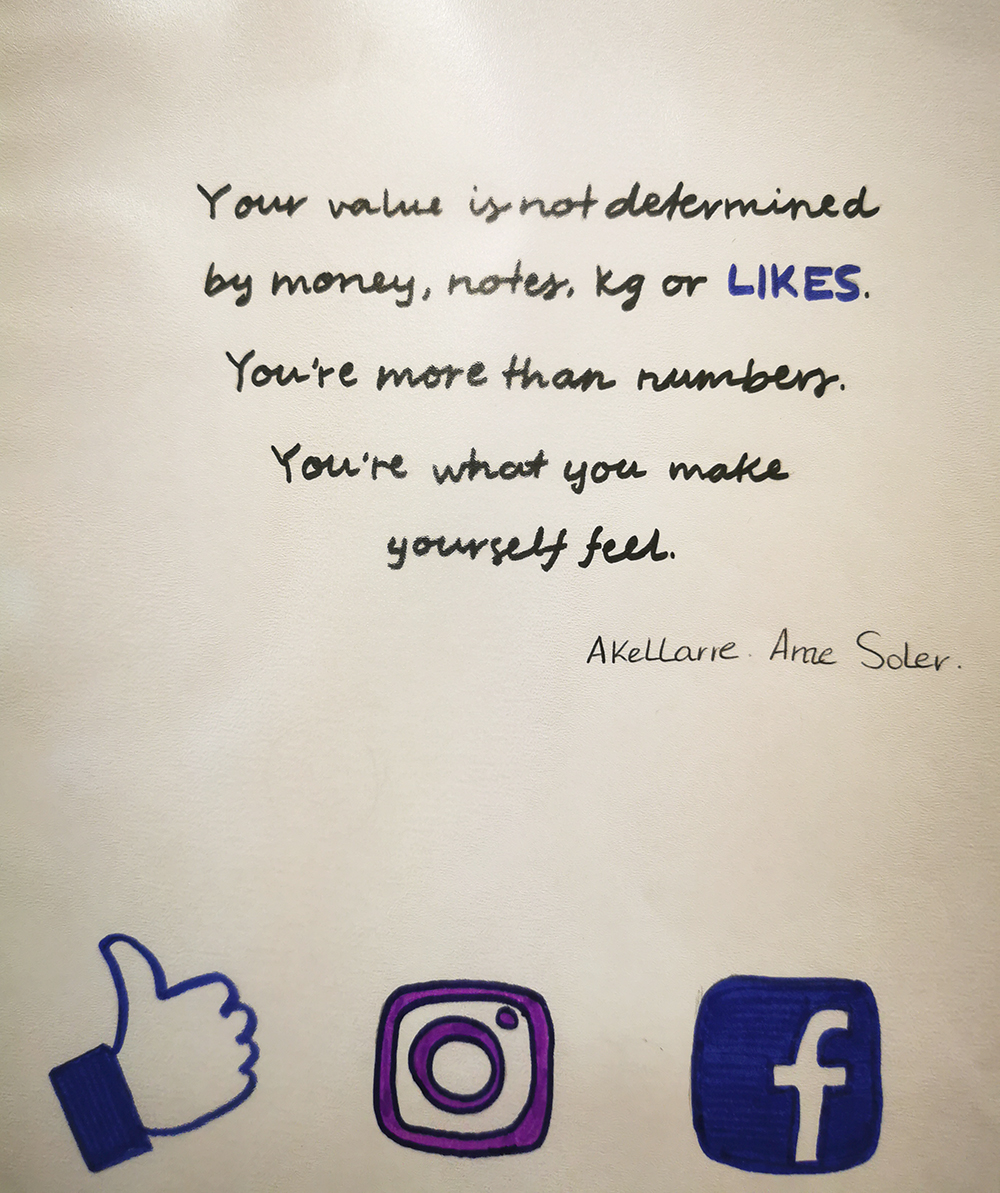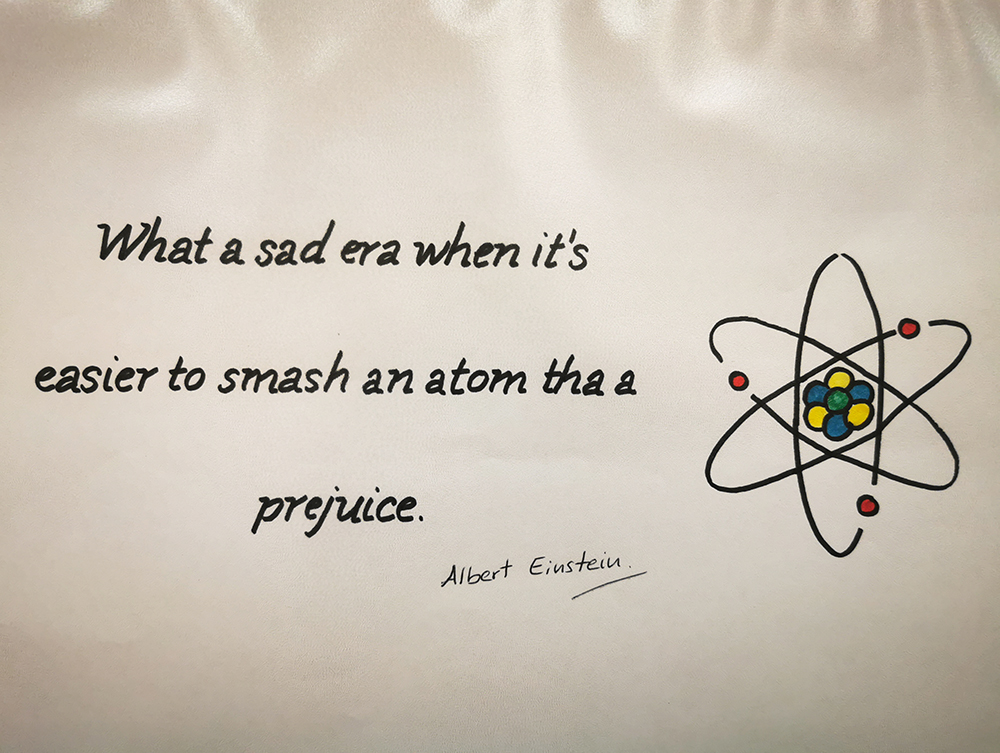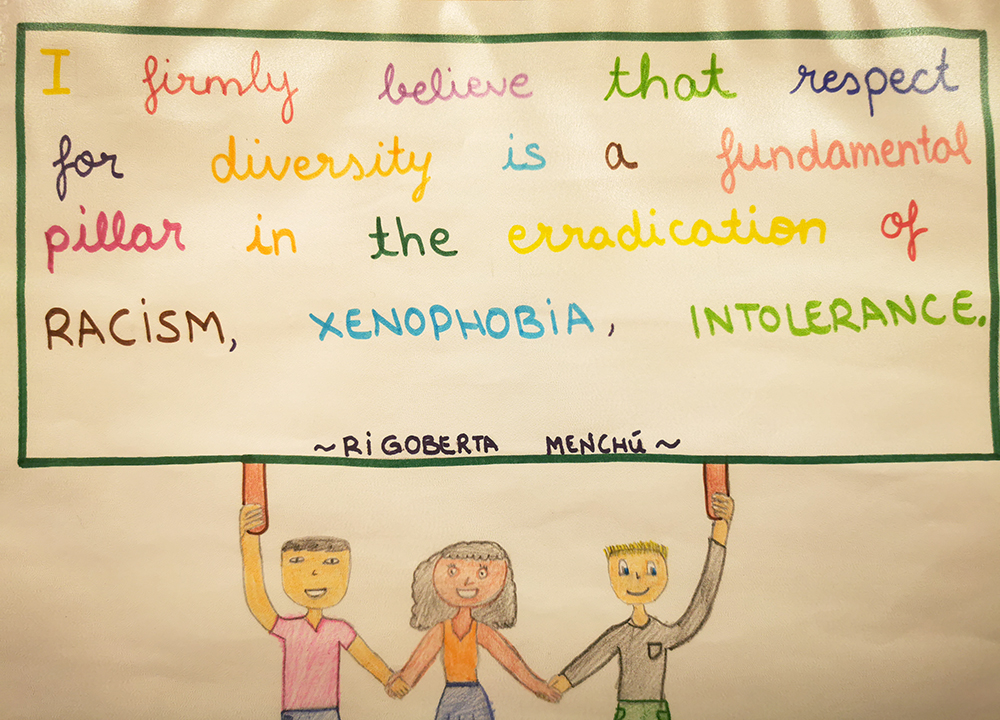TRAINING
Meeting during the short-term joint staff training event
Several hours of the training event were dedicated to talk about project activities. This event took place in Valencia (Spain), 18th – 22nd October 2021
Leading organization: MERAKI
Website: merakiprojectes.es
Contact email: laura@merakiprojectes.es
In October 2021, all partners met for a training event of 5 days during which they shared their competencies, knowledge and experiences in relation to project’s topics. Before the training, partners shared their expectations and wishes about future activities on project’s results. During this event, all partners analysed the results obtained upon completion of the first draft of InCrea+ Methodological Material and investigate methodologies, practices and possibilities on how to adopt educational artmaking activities to foster the development of 21st Century Skills, inclusion and wellbeing in secondary education, as well as analyse the proper tools to transmit this knowledge to teachers.
The event involved teachers, education experts and artists, participating in the co-design of InCrea+ Curriculum.

Day 1 – October 18, 2021:
The partner schools of the project presented the good practices they implemented in the field of art therapy/education and inclusiveness and shared their opinions and the results achieved with the partners. The responsible partner of IO1 presented the content of the methodological material which will form the theoretical basis of the training.

2nd Day – 19th October 2021:
During the second day of the training, partners took part in a workshop on cooperative learning, chaired by Enric Ortega Torres. The course started with a definition of what cooperative learning is and how to foster these practices within classes. The trainer highlighted the main differences among various types of students’ grouping (heterogeneous, homogeneous, cross-grade) and interaction modes (individualist, competitive and cooperative) and explained how these elements affect the cooperative learning process. Partners will be then asked to experiment firsthand what cooperative learning is: the trainer divided them into groups and each group was asked to find a common definition on “inclusion”, “educational inclusion” or “the role of arts in inclusive education”. The final definitions were the results of a joint effort of all partners and will be integrated into the project future results.

3rd Day – 20th October 2021:
During the third day, partners agreed on how to integrate the definitions created on the previous day into the Methodological Material and the Curriculum, discussing how these new definitions may affect some of the chapters already developed. Moreover, partners discussed and agreed on the main characteristics that the Curriculum and the assessment tool and methodology will have, considering what they had learned during the first two days of training and what they expected to learn during the last two days.

4th Day – 21st October 2021:
Beatriz Uixera Cotano and Laura García Toledo from “Mistral – Acciò Social” lead the fourth day of the training, with a workshop on “Inclusive education and creativity”. During the training, partners took part in many group and practical activities on educational inclusion, when they were asked to reflect on the topic and create their own inclusive school, on inclusion and diversity, where the characteristics of an “inclusive” teacher were analyzed, and on accessibility, which was analyzed from many perspectives (emotional, physical, sensory, etc.). Finally, partners were invited to plan in pairs a school trip, taking into account all the students’ needs and having always in mind the inclusive principles and the accessibility.
5th Day – 22nd October 2021:
The last day of the training was dedicated to a workshop held by Herme Fernando on “Digital tools for Inclusion”. Partners have the chance to learn more about the gamification and its main elements, enjoying the numerous practical examples that the trainer showed them. Moreover, part of the workshop dealt with flipped classroom and how it impacts the learning process; the trainer showed to partners how, thanks to flipped classrooms, it is possible to make students learn using mostly the “higher-order thinking skills” (create, assess, analyze) instead of asking them just to remember and understand specific notions.

